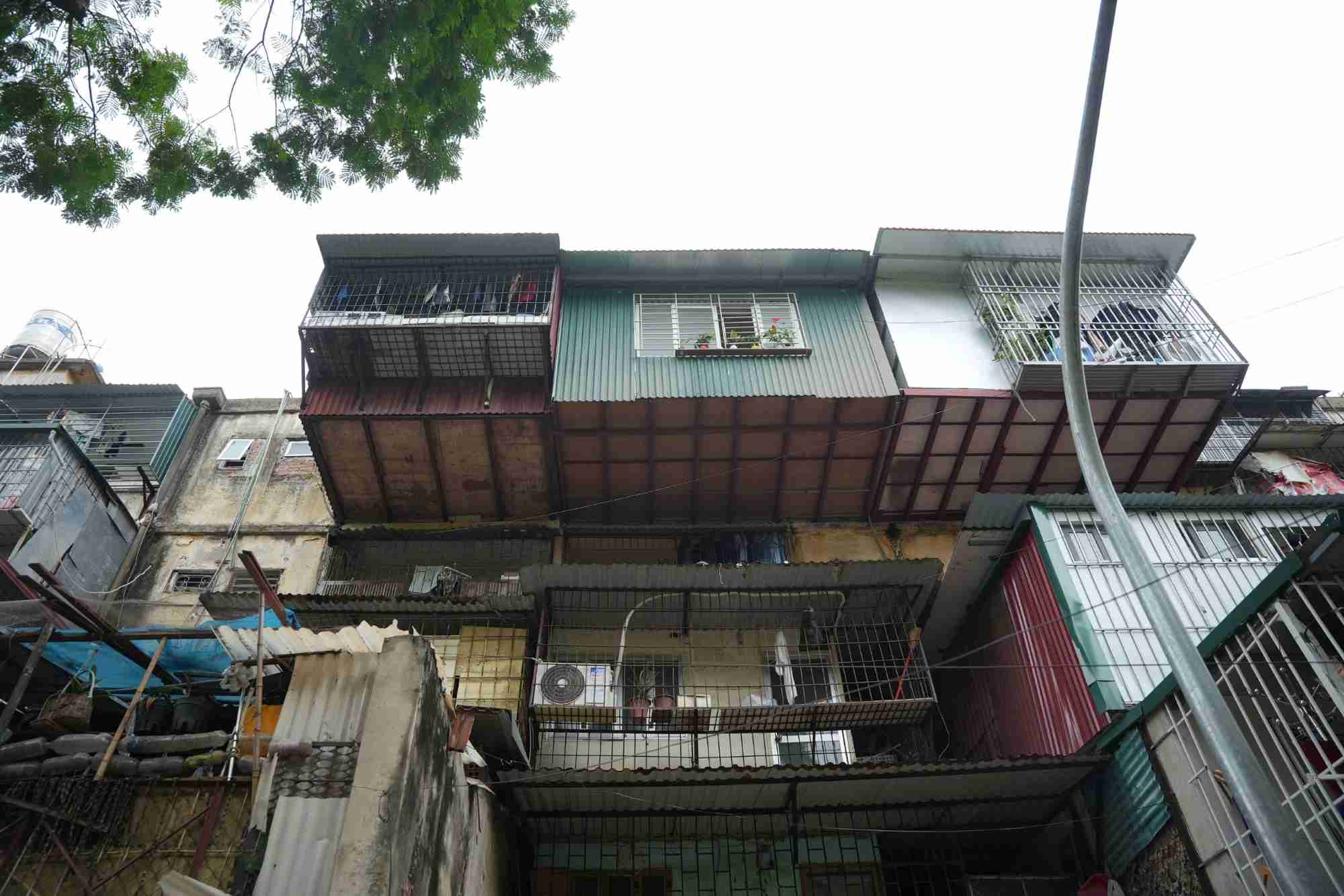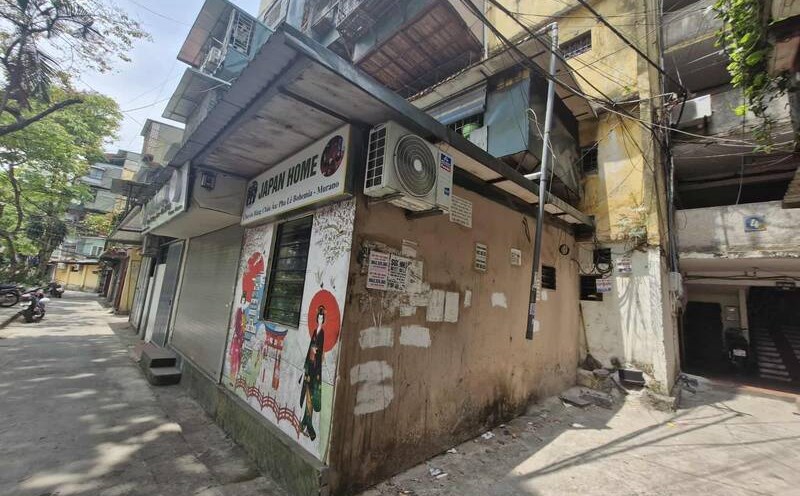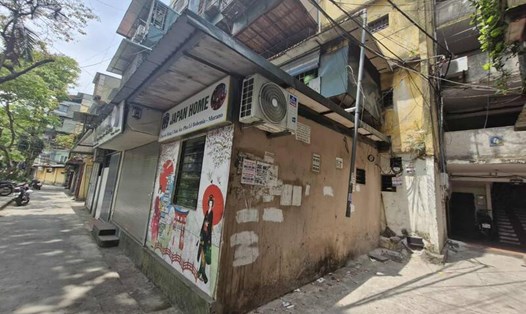cheap - near the center - no red book still attracts customers
With an amount of less than 1 billion VND, Mr. Quach Duc Hieu (Thanh Xuan District) and his wife have almost no choice but to rent old collective apartments. "Social housing is not qualified, but buying a house with a certificate means traveling far away, not convenient for living and work" - Mr. Hieu shared.
In collective housing areas in Hanoi such as: Thai Thinh, Vinh Ho, Thanh Cong, Tan Mai, Thanh Xuan Bac... many apartments do not have pink books but are still bustling with transactions. The advantage of these apartments is that they are located in the center, with full infrastructure, near schools, markets, spacious living space and affordable prices.
To expand living space, many households have expanded and built more "tiger cages" and "backs". Mr. Hieu said that he once visited an apartment in Area E, Thanh Xuan Bac Ward, with an area recorded in the certificate of 74.9m2, which had been bought and sold, transferred up to... 8 times, all through the certificate.
People here still live stably, pay their own electricity and water bills, and have clear documents. They consider it very convenient because it is close to markets, schools and some hospitals.
According to Mr. Do Van Thach - representative of Dova Land Real Estate Company, many old collective houses owned by the State have not been granted a separate red book (or are only issued as collective households). Therefore, the transaction is essentially an unclear transfer of ownership, with the risk of being revoked or being sued by a third party.
According to Mr. Thach, the certificate does not have legal value limiting ownership, so if the seller mortgages the house, sells it to someone else, or is foreclosed by a court, the buyer will not have the right to claim the property back.

Is the "red mark" of a certificate enough to reassure?
According to experts, the subjectivity in the notarized documents - a form of recording Thua's marked real-life behavior - is making many people mistakenly believe about the legality. Therefore, people need to consider before buying. For collective houses that do not have a certificate, they should wait for a certificate, or require the seller to carry out the legalization procedure first. The seller is the owner of the old household with original distribution documents from the State agency/organization, accompanied by a commitment to hand over benefits when the house is granted a resettlement book/compensation if cleared.
Lawyer Nguyen Duc Toan - Vimax Asia Law Firm - said that the notarized document is not not a notarized or certified document. The remaining distribution only recorded the handover of money and house division between the two parties - completely without verifying the ownership of the house. Therefore, if a dispute arises, the document cannot guarantee the rights of the buyer.
Article 37 of Decree No. 08/2020/ND-CP of the Government also clearly states: Post-distribution cannot be accompanied by a document to confirm property transfer transactions without documents proving ownership.
In the context of Hanoi promoting the renovation of old collective houses, apartments with unclear documents for sale can face risks when determining resettlement rights. Buyers may not be recognized as legal owners, which means they will not be compensated or have a new house.
Therefore, lawyer Nguyen Duc Toan recommends that people should only buy and sell real estate through notarized contracts, clearly establishing ownership. The issuance of the certificate should only be considered as evidence, not a legal basis for house transfer.
While waiting for the policy of renovating old houses to be implemented synchronously, experts recommend that people need to carefully study the legal documents when buying a collective house. Do not accept to exchange all assets and legitimate benefits in the future for the factors of "cheap houses - near the center - no red book".











